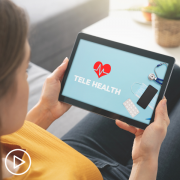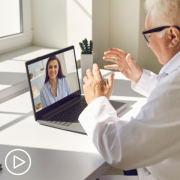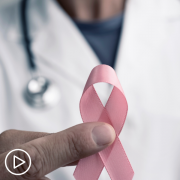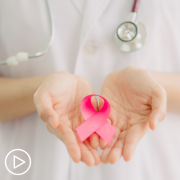Is Telemedicine an Advantage for Low-Risk Breast Cancer Patients?
Is Telemedicine an Advantage for Low-Risk Breast Cancer Patients? from Patient Empowerment Network on Vimeo.
For low-risk breast cancer patients, is telemedicine an advantage? Expert Dr. Regina Hampton from Luminis Health Doctors Community Hospital shares her views on when telemedicine makes sense for low-risk patients and the benefits she’s seen for patients’ quality of life.
See More from the Breast Cancer TelemEDucation Resource Center
Related Resource:
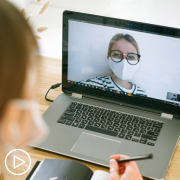
|

|
Transcript:
Dr. Regina Hampton:
I think it helps to eliminate a lot of those in-person visits, which then means they can enjoy life. We want them to enjoy life after surviving their breast cancer diagnosis and treatment. So maybe they’re doing their televisit while they’re on vacation or while they’re out of the state, visiting with relatives. So it really allows them to be able to stay in tune and in touch with their healthcare providers, stay on top of their visits, but allow them the flexibility to continue to live life. I often tell patients, “Look, after we’ve treated you, we don’t want you in our offices all the time. We want you out there living life.” And if we can make that easier by doing a quick tele visit, especially if there’s not something serious going on, then I think that’s a great advantage. And I think as we move deeper and deeper into the telemedicine world, I think patients are going to appreciate that, and they’re going to actually demand it and say, “Well, you know, I’m doing fine, I just need you to look at my mammogram and us to have a quick discussion while on a cruise or while I’m on the beach in Hawaii enjoying some time with my family.” So, I think it’s opened up a new world, and it’s just going to get better and more easy, and I think patients are going to shift their brains to say, “You know, if I don’t have to be in an office somewhere, I’d rather be on a video or a phone visit.

